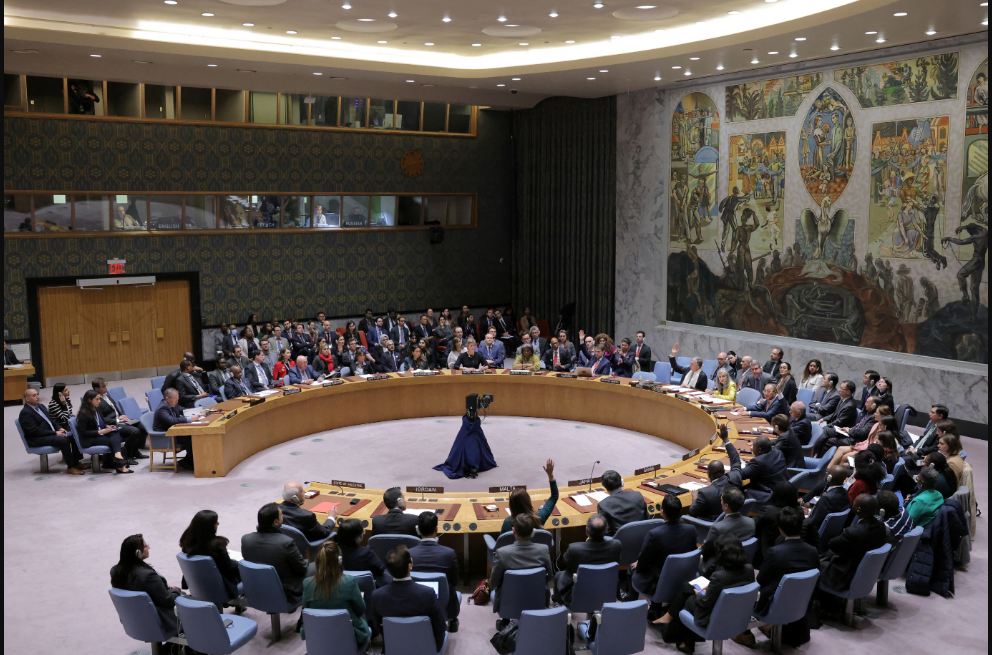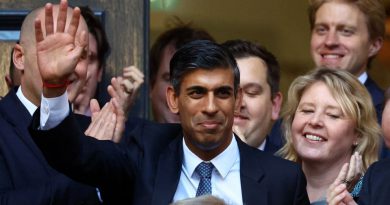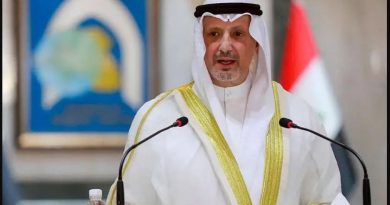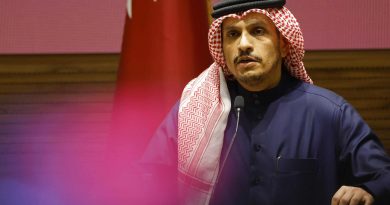US veto at UN to shield Israel could weaken its Ukraine rallying cry
United Nations (Reuters) – U.S. credibility rallying support for issues like Ukraine may have been compromised, some diplomats said, after Washington this week blocked United Nations action to protect Palestinian civilians in Gaza from the war between Israel and Hamas.
The U.S. veto in the U.N. Security Council bolstered long-held criticisms of the West by Russia, China and some developing countries and could once again hinder Washington’s immediate ability to win backing for issues tied to human rights and humanitarian law.
In 2017 and 2018, the United States – under then-President Donald Trump – cast two vetoes to shield its ally Israel, complicating a U.S. campaign to reform the U.N. Human Rights Council. Washington ultimately gave up due to a lack of support.
U.S. Ambassador Linda Thomas-Greenfield justified Wednesday’s veto by telling the council more time was needed for diplomacy on the ground as President Joe Biden and Secretary of State Antony Blinken visited the region, focused on brokering aid access to Gaza and trying to free hostages held by Hamas.
The United States is “firmly committed to urgently addressing the dire humanitarian needs of civilians in Gaza, as both President Biden and Secretary Blinken emphasized during their trips to the region,” Nate Evans, spokesperson for the U.S. mission to the United Nations in New York, said on Friday.
But after successfully and repeatedly isolating Russia in the 193-member U.N. General Assembly over its February 2022 invasion of Ukraine, Washington may have to work harder if lobbying to build support for any future action.
“The wider world will see an equivalence between this veto by the U.S. and Russia’s behavior over Ukraine. Moscow and Beijing will emphasize this point whenever they can,” said Richard Gowan, U.N. director at the International Crisis Group.
“Everyone knows Israel is a special case for the U.S., but the Americans ultimately slapped down a text that was very mild and humanitarian in focus,” he said. The vetoed text included calls for pauses in the conflict to allow aid access to Gaza and for all parties to comply with international law.
The Need ‘To Get This Right’
Israel has vowed to wipe out the Hamas Islamist group that rules Gaza, after its gunmen burst through the barrier fence surrounding the enclave on Oct. 7 and rampaged through Israeli towns and kibbutzes, killing 1,400 people, mainly civilians.
Israel has since pounded Gaza from the air and imposed a complete siege on the enclave. The Palestinian health ministry says more than 4,000 Palestinians have been killed. The U.N. says more than a million have been made homeless.
Thomas-Greenfield said the U.S. was disappointed the draft resolution made no mention of Israel’s rights of self-defense. She left the door open to future U.N. action, but said the council “needs to get this right.”
Louis Charbonneau, U.N. director for Human Rights Watch, said: “If the U.S. and other Western governments want to convince the rest of the world they are serious about human rights and the laws of war, principles they rightly apply to Russian atrocities in Ukraine and to Hamas atrocities in Israel, they also have to apply to Israel’s brutal disregard for civilian life in Gaza.”
Former senior U.S. and U.N. official Jeffrey Feltman, a fellow at the Brookings Institution, said that while the origins of the war in Ukraine and the conflict between Israel and Hamas were “starkly different,” it would not stop comparisons by some.
“What better way to reinforce perceptions in the so-called Global South of American double standards than comparing Washington’s condemnation of Russian destruction of Ukrainian civilian architecture with Washington’s relative silence about Israel’s destruction of Gazan civilian infrastructure?” he said.
Diplomats Cite Loss Of Credibility
Senior diplomats from Africa, Asia, Europe and the Middle East voiced concerns about double standards when contacted by Reuters after the U.S. veto, all of them speaking on condition of anonymity so as to preserve diplomatic relationships.
“They lost credibility with the veto. What is good enough for Ukraine is not good enough for Palestine. The veto told us that Ukrainian lives are more valuable than Palestinian ones,” said an African diplomat.
A senior Arab diplomat said international law appeared to be “invoked selectively” by global superpowers.
“We cannot choose to call on the U.N. Charter’s principles to protect Ukraine and ignore it for Palestine,” the diplomat said. “This double standard is not only unjust but makes the world a much more dangerous place.”
As global concern grew over the worsening humanitarian crisis in Gaza – besieged by Israel after Hamas carried out the worst attack on civilians in Israeli history – diplomats say Russia saw an opportunity to retaliate over Ukraine by trying to diplomatically isolate the U.S. for supporting its ally.
When launching Russia’s bid for U.N. action last week, Ambassador Vassily Nebenzia called out western states for opposing a public council meeting “while they use every fake pretext to call for the discussions of the situation in Ukraine.”
A Russian-drafted resolution that called for a humanitarian ceasefire failed to pass on Monday. It was a similar attempt by Brazil that the United States vetoed on Wednesday.
Libya’s U.N. Ambassador Taher El-Sonni bluntly addressed the Security Council after the vote on Wednesday.
“You have been preaching and lecturing us for decades, especially Western countries, about human rights and international law,” he said. “What message are you sending today to the world? The people of the world are not ignorant. So stop this double standard and stop this hypocrisy.”



